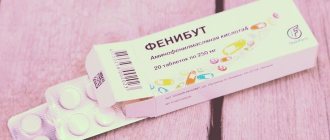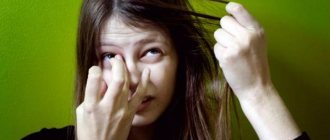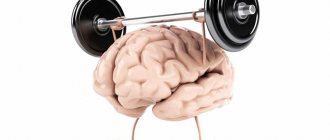A panic attack is the result of a sudden release of special substances into the blood - catecholamines, produced by the endocrine glands - the adrenal glands. The main catecholamine, adrenaline, is widely known as the “fear hormone.” Therefore, a panic attack is always accompanied by fear.
If the healthiest and most phlegmatic person is injected with adrenaline, then he will have symptoms of a typical panic attack: a wave of fear will come, the heart will “jump out of the chest”, “tremble”, break into a sweat, there will be severe weakness, heaviness or burning in the chest , a feeling of sudden heat or cold, it will take your breath away, your blood pressure will “jump”, your limbs will become cold or numb, your legs will become “wobbly”, your head will become foggy, you may experience nausea, dizziness, a feeling of instability, unsteadiness, unreality, unnaturalness of what is happening, perhaps the need to empty your bladder bladder and intestines.
The same thing will happen with any sudden fright (a firecracker exploded, a dog jumped out, almost got hit by a car, they were just joking, grabbing him by the shoulders from behind).
What it is?
Panic attack syndrome is more common than is commonly thought - it affects approximately 5% of people, mostly young people - from 20 to 30 years old. Moreover, women suffer from panic attacks more often than men. Panic as a natural reaction to stress is familiar to many, but why does it sometimes arise “out of the blue”, for no apparent reason?
A panic attack provokes a sharp release of adrenaline, a hormone that prepares the body to react to a potentially dangerous situation, triggering the “flight or fight” mechanism. The heart rate increases and breathing becomes more intense, which leads to hyperventilation of the lungs and a decrease in the level of carbon monoxide in the blood - it is this reaction that causes dizziness, numbness in the limbs, tingling in the fingers and sometimes on the scalp.
Such a response of the body to danger is absolutely normal, and a panic attack is just a failure in the system, due to which the “emergency mode” is activated without obvious need.
Precautionary measures
Sport helps counter stress factors that lead to panic attacks
A woman can follow certain recommendations in order to reduce her likelihood of developing panic attacks.
- It is necessary to learn breathing techniques in order to be able to relax on your own, reducing your level of anxiety.
- You need to play sports, because when you do physical activity, the body releases a hormone of happiness, which improves your mood and reduces anxiety.
- It is advisable to practice meditation and yoga. These eastern practices allow you to relax the body and improve a person’s internal state.
- Maintaining a daily routine. It is important that sufficient time is allocated for sleep and that there is a proper balanced diet with a sufficient amount of vitamins and minerals. It is important to distribute your day between activity and rest.
- You need to take care of developing a hobby that will fill all your free time, allowing you to feel successful, enjoy the results of your activities, which will ease your psycho-emotional state.
Now you know what the signs of panic attacks in females are. As you can see, there can be many reasons influencing the occurrence of such attacks, both physiological and pathological. If you notice characteristic symptoms in yourself or your family, do not delay visiting a specialist, seek help from a psychologist, psychotherapist, or work through your fears on your own.
Classification
To successfully treat panic attacks, you need to understand what they are and what causes them. The correct choice of treatment method will depend on this.
There are usually three main types of PA:
- Spontaneous panic attacks occur for no apparent reason. With such PA, it is necessary to undergo a full examination to exclude the presence of somatic diseases. If they are not there, see a psychotherapist.
- Situational PAs occur during a specific traumatic situation. You can contact a psychotherapist without an in-depth examination, since the person’s fear, which causes all the symptoms, is obvious.
- Conditioned situational PAs occur when exposed to a specific chemical or biological stimulus. Such a stimulus can be the use of alcohol or drugs, hormonal surges at different periods of the menstrual cycle, etc. If such a connection can be traced, then you need to contact a specialized specialist.
Circle of panic and self-deprecation
In order to figure out whether panic attacks can be treated, you should first study the development, as well as the mechanism of this cognitive disorder, and find out the reasons for its occurrence. Only after this can we talk about using any treatment. There is a special term - the circle of panic, and it is with this that you should begin a close acquaintance with panic attacks.
Photo from the site: irinazaytseva.ru
Panic attacks can occur in a completely healthy body, when there are no signs of trouble. This can happen under the influence of acute or chronic stress, as well as when similar phenomena and factors are favorable. What a panic attack is, as well as what signs and symptoms are its manifestations, there is already an article on the site.
- Various catalysts, such as excessive consumption of alcohol, drugs, chronic fatigue and lack of sleep, and even energy drinks and excessive consumption of strong coffee.
- Often, a tragedy with a loved one, tense family relationships, loss of a job, or an extremely difficult financial situation can play a destructive role. It is then that the question arises of how to treat panic attacks, anxiety, unreasonable fear and other “charms” of such disorders.
- At that moment, when the level of stress goes off scale, a feeling of unreality of what is happening arises, and the body awakens its inner guard, as experts jokingly call adrenaline and nor-adrenaline, which become the main cause of a panic attack.
- Extreme external circumstances cause one of two reactions: the brain sends a signal to rush into battle, or to run away wherever your eyes look. This is why during panic attacks a person can become irritable, nervous and aggressive.
Photo from website: israclinic.com
It is worth understanding that the inner watchman does not care how real the danger is, whether it exists at all, or whether it is far-fetched, imaginary. Adrenaline and its analogue accumulate in the muscles, preventing them from relaxing, tension increases, and at this moment the brain continues to sense danger on a subconscious level. When something like this happens for the first time, the memory of it is deeply deposited and at the slightest irritation, a defense mechanism is activated, which actually destroys our body and psyche. That is, a person winds himself up, bringing him to such a state of formal horror, thereby forcing more and more adrenaline to be released into the blood.
Why does a panic attack develop?
There are 3 groups of factors that can provoke a panic attack: psychogenic, biological and physiogenic. In clinical practice, it has been observed that there is often a combination of several provoking triggers. Moreover, some of them are decisive in the occurrence of a primary attack, while others initiate repetitions of a panic attack.
Among psychogenic triggers, the most significant are conflict situations - a showdown, divorce, scandal at work, leaving the family, etc. In second place are acute psychotraumatic events - an accident, death of a loved one, illness, etc. There are also abstract psychogenic factors that affect on the psyche through the mechanism of opposition or identification. These include books, documentaries and feature films, television programs, and various Internet materials.
Biological triggers include various hormonal changes (mainly in women in connection with pregnancy, abortion, childbirth, menopause), the onset of sexual relations, hormone intake, and features of the menstrual cycle (algomenorrhea, dysmenorrhea). It should be noted that paroxysms caused by endocrine diseases - hormonally active tumors of the adrenal glands (pheochromocytoma) and thyroid diseases occurring with hyperthyroidism are not considered a panic attack.
Physiogenic triggers include acute alcohol intoxication, drug use, meteorological fluctuations, acclimatization, excessive insolation, and physical stress. Some pharmacological drugs can provoke a panic attack. For example: steroids (prednisolone, dexamethasone, anabolic steroids); bemegride, used for induction of anesthesia; cholecystokinin, used in instrumental diagnostics of the gastrointestinal tract.
As a rule, the appearance of panic attacks is observed in individuals with certain personal qualities. For women, this is demonstrativeness, drama, a desire to attract attention, and the expectation of interest and participation from others. For men - initial anxiety, increased concern for their health and, as a result, excessive listening to the state of their physical body. It is interesting that altruistic people, more inclined to give to others than to desire for themselves, never encounter problems such as panic attacks and other neurotic disorders.
Why do seizures occur?
You need to understand the reasons for a panic attack, what the signs are and methods of treatment at home. A panic attack is a short-term seizure in which neurological and psychological disorders appear. Until today, doctors have not been able to accurately determine all the causes of this disease.
Let's list the most likely ones: VSD, genetic predisposition, mental disorders, stressful situations, chronic pathologies in organs, infections.
Seizures occur spontaneously under the influence of destructive factors. These include: stressful situations, nervous strain, excessive physical stress on the body, and the patient being in a crowd of people. Seizures can occur after various disorders of the internal organs. Situations often arise when seizures appear after hormonal therapy, stroke and ischemic brain disorders.
Panic attacks often occur in psychologically unstable individuals. A similar condition is observed in drug addicts and people who abuse alcohol. The trigger for worsening the psychological state may be fear of something or nervous overstrain.
What happens to a person during an attack?
The duration of an attack can vary significantly, but the cause is always a certain trigger - a factor that causes anxiety.
A similar factor could be an unpleasant smell, an unexpected sound, or being surrounded by people. Sometimes attacks occur while walking through large shopping centers, where the cause is a large crowd of people. The first anxiety attack occurs when suffering a strong emotional shock, which leads to a disruption in the normal functioning of the nervous system.
When an attack occurs, increased heart rate and excessive sweating are observed. After a short period of time, panic appears, its manifestations can be of a different nature. Some people experience irrational feelings of fear, while others experience confusion. A panic attack may last only a few moments, but sometimes it ends after 2-3 hours. Symptoms increase at a rapid rate. Such conditions often occur in women at a young age, however, men are not immune from such attacks. The duration of the first attack is usually fleeting.
This condition passes quickly enough, but a sticky fear remains in the soul and concern arises about the state of health. Panic attacks occur for no reason and disappear suddenly, so the disease should be classified as “difficult” to treat. It should be noted that panic attacks occur against the background of a person’s absolute health.
Psychotherapeutic assistance
During panic attacks, there is no need to remind the patient to seek medical help. A person prone to seizures may think that they are being mistaken for mental illness, which will cause new worries. You should talk about specialized treatment after a panic attack. The patient should be explained that panic attacks are not necessarily evidence of mental illness, and that attacks occur in many people.
The main methods of psychotherapeutic treatment of attacks include:
- psychoanalysis. This method helps you better understand yourself and find the true causes of your problem.
- systemic family psychotherapy. Some fears arise within the family circle. Today's adult may have been rejected by his parents in childhood and suffered from a lack of understanding from those closest to him. The result was numerous complexes and hidden aggression, manifested in the form of panic attacks. It is desirable that not only the patient himself, but also his relatives participate in the treatment process.
- hypnosis. This method is used as a last resort. Hypnosis involves interfering with a person's subconscious, which can have negative consequences. But sometimes the work of a hypnologist becomes the only way to get rid of attacks.
Other methods of psychotherapeutic work include neurolinguistic programming, gestalt therapy, cognitive behavioral and body-oriented therapy.
Every person who has had a panic attack at least 3-4 times should contact a specialist. The doctor will tell you what to do during an attack.
A panic attack is not a fatal or incurable illness. Throughout life, the number of attacks may decrease or increase depending on circumstances, the patient's physical health and some other factors. There is a chance to get rid of the problem completely through a conscious attitude towards your illness.
Symptoms of a panic attack
Panic attack syndrome manifests itself with a wide range of symptoms.
Conventionally, the symptoms of a panic attack can be divided into physical and mental. They can appear both during the day and at night. It is believed that people with strong willpower are more susceptible to night attacks.
Thus, while controlling their fear and emotions during the day, they experience panic attacks at night.
Mental symptoms
Most often, these symptoms prevail over the others. The feeling of impending trouble and imminent danger forces people to hide, not leave the house, and limit social contacts.
Mental symptoms of a panic attack:
- a feeling of impending trouble and surrounding danger;
- fear of dying or just pointless fear;
- timidity and stiffness or, conversely, motor restlessness;
- feeling of a lump in the throat;
- “slipping of gaze” (a person cannot keep his gaze on one object);
- a feeling of unreality of what is happening (the world is perceived as distant, some sounds and objects are distorted);
- waking up during sleep.
The common characteristic of all these symptoms is their suddenness. The appearance of panic is not preceded by any aura (be it a headache or feeling unwell). Most often, patients describe the symptoms as “bolt from the blue.” All these symptoms appear and increase in intensity very quickly. An influx of thoughts arises in the head, they are often confused, and the person is not able to explain who or what he is afraid of.
At the same time, among the confusion of thoughts, the thought of possible death dominates. Most often, people fear dying from a heart attack or stroke. In addition, there may be a fear of “going crazy.” Often an individual subject to a panic attack mentally conducts a conversation with himself. In response to the thought that there is danger, an automatic thought arises that the world is dangerous. At this moment, people attempt to run and hide. However, sometimes the anxiety is so great that a person is unable to move and is in a daze.
At the same time, there is a feeling of unreality of what is happening. Some sounds and objects are distorted, the place where a person was a minute ago seems unfamiliar, and therefore dangerous. Sometimes it feels like it's in slow motion, while others feel like they're in a dream. The panic attack stops as suddenly as it started. It often leaves an unpleasant aftertaste, a feeling of weakness and depression.
Physical symptoms
Physical symptoms are expressed most clearly with somatized anxiety, that is, when there is some kind of pathology.
Physical symptoms of a panic attack:
- hot or cold flashes;
- frequent urination;
- shortness of breath and chest pain;
- heartbeat;
- sweating;
- dry mouth;
- diarrhea.
The cause of all these symptoms is stimulation of the autonomic nervous system (vegetative crisis) and the release of a large amount of biologically active substances into the blood. The main role in the development of physical symptoms is given to catecholamines (adrenaline, norepinephrine and dopamine). Under stress, these substances are released in large quantities into the blood. Their main effects are stimulation of the cardiovascular, respiratory and nervous systems.
Effects of catecholamines and associated symptoms:
- stimulation of receptors that are located in the heart muscle - increased heart rate (tachycardia);
- increased heart rate - a feeling that “the heart is about to jump out”;
- vasoconstriction – increased blood pressure;
- constriction of blood vessels and dilation of blood vessels in the periphery - hot and cold flashes;
- increased breathing, due to tachycardia - shortness of breath;
- stimulation of the autonomic sympathetic nervous system – retention of salivation – dry mouth;
- decreased concentration of carbon dioxide - decreased blood acidity - weakness, dizziness, numbness;
Most physical symptoms are subjective, that is, they are felt only by the patient. For example, a patient may describe a panic attack accompanied by severe pain in the heart, while there are no cardiac pathologies.
Gastrointestinal disorders are observed in people suffering from irritable bowel syndrome. This symptomatology is one of the main reasons for the development of isolation and disruption of all social contacts. A panic attack may result in vomiting or urination. The most pronounced disorders of the intestines and urinary system are observed in children.
The difference between all these symptoms and an organic disease is their transience and the absence of these same complaints in the periods between panic attacks.
Panic without panic
Doctors are particularly interested in panic attacks, in which there is virtually no emotional stress and physical symptoms are very mild. Such panic attacks without fear are called “masked anxiety” or “alexithymic panic.”
It is called masked because fear and anxiety are masked by other symptoms. Moreover, the symptoms presented by the patient are not true, but functional. For example, he may experience a decrease or complete absence of vision, while there are no problems with the vision apparatus.
Symptoms of “panic without panic”:
- lack of voice (aphonia);
- lack of speech (mutism);
- lack of vision (amaurosis);
- disturbance of gait and statics (ataxia);
- "twisting" or "twisting" the arms.
Most often, these symptoms develop against the background of a pre-existing mental disorder. As a rule, this is conversion personality disorder or, as it is also called, hysterical neurosis.
How to breathe correctly?
A vegetative crisis always begins with the release of a large amount of adrenaline into the blood. This helps to increase heart rate and breathing. As a result, there is too much oxygen in the blood. The body does not have time to work normally at such a rhythm. Extraction requires carbon dioxide, of which there is too little.
How hyperventilation is reduced. You can hold your breath. It is difficult to do this during an attack for the first time, so you need to practice in calm conditions. You need to take 4 breaths per minute. You need to look at your watch and take a breath every 15 seconds. Inhalation should be done quickly, and exhalation should be done slowly.
You can additionally make bends in the body, achieving the feeling of complete release of air. You need to tuck your stomach and push out the contents of your lungs with your pectoral muscles. Additional bends of the body will be required to allow the air to escape. Exercises must be performed not only at home, they are suitable for crowded places.
You can breathe into a closed bag. The increased concentration of carbon dioxide helps cope with excess oxygen in the blood.
You need to constantly take regular breaths. Listen to your own feelings and relax more often. During the process of exhalation and pauses, it is necessary to achieve the greatest relaxation. Such techniques will have to be persistently mastered; such training is carried out in a variety of places. If you learn to control your own breathing, a panic attack is unable to gain intensity.
How to distinguish a panic attack from other problems
A panic attack feels like something very serious, but in reality it passes without a trace. If you have the slightest doubt about the reasons for what is happening, be sure to call an ambulance. One thing distinguishes a panic attack from any other serious attacks that are dangerous to health and life: the symptoms do not intensify, but disappear after 10–15 minutes. Let's figure out how to distinguish a panic attack from other conditions that are truly life-threatening.
| Heart attack | Panic attack |
| During a heart attack, chest pain may go away, but then return and last longer than 10 minutes. Discomfort and heaviness in the upper body, unpleasant sensations in the left arm. The pain does not affect breathing. Fear is caused by chest pain. | Symptoms peak within 10–15 minutes and subside. The sensations are not limited to the left arm and resemble tingling rather than heaviness. Breathing is difficult. Fear is irrational. |
| Stroke | Panic attack |
| Sudden numbness or weakness of the muscles of the face, arms or legs, sudden blurred vision, unsteadiness of gait, loss of coordination, severe dizziness. It’s easy to check by trying to smile, speak, or raise your hands. If one side of the face is hard to hear, speech is unintelligible, and the hand does not obey, immediately call an ambulance. | Mild muscle numbness and dizziness may occur, but the pressure rarely rises above 180\120 mmHg. Art. There is no asymmetry in the smile or movements. Thoughts are confused, but speech is clear. |
| Mental disorder | Panic attack |
| Symptoms go away slowly, panic lasts longer, triggers cannot be classified. The frequency of attacks increases and is accompanied by additional problems - insomnia, aggression, confusion. A person is inclined to justify an attack with irrational reasons: magic, damage, the influence of an alien intelligence. | The symptoms disappear without a trace, the triggers are clear, the person is able to describe the symptoms in detail and intelligently. Personality does not change. |
| Epilepsy | Panic attack |
| Sudden and unpredictable onset of an attack. Duration from a fraction of seconds to several minutes. Attacks can follow one after another. Convulsions, speech impairment, inability to control movements. Personality change. | Attacks occur under the same or similar conditions - fatigue, stress, confined space. Duration from 5 minutes to half an hour. During a panic attack, the body is objectively under control, although the brain does not immediately realize this. Personality does not change after the attack. |
It is important to distinguish a panic attack that goes away on its own from conditions that require immediate medical attention.
What to do if you have a panic attack?
Many people have to deal with seizures occurring outside their home - on the subway, on the street or on an airplane. Medicines may not be available.
There are several ways to help cope with anxiety:
- Try to take a sitting position, close your eyes and lean back in your seat.
- You need to control your breathing.
- Try to imagine something pleasant and calming - the sound of the surf, the forest, the singing of birds, the rustling of leaves in the wind.
- Try to feel the fatigue of your whole body.
Relaxation helps to quickly relieve anxiety. This method will only work if the person tries to concentrate on inner peace.
Expert advice
You need to familiarize yourself with the rules that should be followed when relieving panic symptoms. Firstly, you need to train your psyche, develop resistance to stress, and you cannot allow environmental factors to terrify you. Panic attacks are an independent disorder; with the right approach, their occurrence can be prevented. There is no need to beat yourself up for various reasons.
Secondly, you cannot isolate yourself and sit at home all the time. You need to walk in the fresh air more often, relax, it is not recommended to completely immerse yourself in work. You need to take steps to relax.
Good music is known to help relieve depression. You can turn the volume to minimum and still go about your business. It is better not to sit idle for a long time; in such a situation, the depressive state may worsen.
The nervous system is destroyed due to bad habits, smoking, and alcohol. If you understand that the situation is getting out of control, you should not hesitate to seek support from a doctor. Qualified psychologists know their job and help many people cope with depression.
Good friendly company and funny movies help eliminate panic attacks. You need to choose the right film and environment so that nothing could aggravate your psychological state. Methods will not be effective if there is no need to set yourself up positively . You need to stop if thoughts that trigger a panic attack begin to occur.
Before falling into horror, you need to try to close your eyes and completely relax, think about something good, lie down, try to fall asleep. You won’t be able to do this right away, but you will still be able to doze off.
Panic attacks: how to deal with it yourself
At home, attempts to independently combat panic attack syndrome, its symptoms and manifestations, yield results in 50% of patients. In 20% of cases, attacks continue sporadically, but no significant changes in the condition of the patients are observed. However, 30% of sufferers may develop depression, which is in no hurry to go away without treatment. At the same time, anxiety attacks also do not leave the person and still come, but as a symptom of another disease.
Often a person turns to a doctor when he has already diagnosed himself: depression or neurosis, in general, what he knows and what he has heard about, but only a psychotherapist can do this. Unfortunately, the professional direction of a doctor often scares people. In addition to sudden panic fears and anxieties, the patient may experience fear of doctors of this profile. But in vain, because you can get rid of a panic attack, only by noticing its symptoms, by taking appropriate treatment.
The ideal option for starting treatment for panic attacks is still considered to be a consultation with a psychotherapist. By considering the problem from a psychiatric perspective, success can be achieved more quickly, since the doctor, having identified the psychogenic origin of the disorders, will prescribe therapy in accordance with the degree of emotional and vegetative disorders.
Medicines
If feelings of anxiety and fear persist (after health-improving and therapeutic measures have been carried out), the need for drug treatment becomes obvious, however, in this case, the doctor goes from less to more.
You can get rid of panic attacks using the following medications:
- Sibazon (diazepam, Relanium, Seduxen) relieves feelings of anxiety, general tension, and increased emotional excitability.
- Medazepam (rudotel) is a daytime tranquilizer that relieves panic fears, but does not cause drowsiness, so it can be used by people whose profession requires special concentration.
- Grandaxin (antidepressant) does not have a hypnotic or muscle relaxant effect and is used as a daytime tranquilizer.
- Tazepam, phenazepam - relax muscles, give a moderate sedative effect.
- Zopiclone (Sonnat, Sonex) is a fairly popular mild sleeping pill that provides complete, healthy sleep for 7-8 hours, but it is addictive, so its continuous use is limited to 3 weeks.
- Antidepressants (mild - amitriptyline, grandaxin, azafen, imizin).
Strong psychotropic drugs with antidepressant effects are not intended to treat panic attacks as an isolated syndrome; they are used in the treatment of severe forms of depressive conditions. Such medications are prescribed, prescribed, and discontinued exclusively by a psychotherapist, and patients take the medication for a long time according to the regimen prescribed by the doctor.
It should be recalled that these medicines are not easy, they do not tolerate amateur activity, so it is better for the patient himself not to try to use them on his own initiative, because they have a lot of contraindications, restrictions and precautions.
Treatment at home without medications
When everything has not gone very far, an experienced psychologist in this area will try to do without the influence of strong psychotropic drugs, and if he prescribes drugs, they will be from the group of mild tranquilizers and mild sleeping pills.
To combat panic attacks yourself at home, you should listen to these recommendations:
- Conduct psychotherapy that can bring out the cause of anxiety and panic attacks and change your attitude towards them.
- Assistance in regulating work and rest schedules, promoting a healthy lifestyle, eliminating bad habits, limiting the consumption of strong coffee and tea.
- Transcendental meditation, according to modern ideas, can help a person get rid of panic fears, anxieties, overcome fatigue and find new health. To do this, you only need to find a good teacher (guru) who has deep knowledge and really knows how to help.
- Swimming pool, massage and various physiotherapy treatments.
- Acupuncture is a wonderful method of combating negative emotions and autonomic disorders: it calms, relaxes, and lifts your spirits.
- Sanatorium-resort treatment, the merits of which hardly make sense to describe, everything is already clear: such therapy, in fact, can change life for the better for a long time.
- Light sedatives: sedatives (valerian, peppermint, trefoil, hop cones), tincture of motherwort, valerian, valerian tablets, adaptol, afobazole, novo-passit and other over-the-counter drugs.
- The traditions of Ayurveda, the source of which is Indian yoga, are, of course, good, but mastering knowledge in this area is a complex and time-consuming task, so it is unlikely that you will be able to fight panic attacks on your own in this way. However, if a person “knows a lot about this matter,” then why not try?
- Auto-training: self-regulation of psycho-emotional and autonomic disorders, suppression of negative emotions, mental relaxation. The elimination of panic disorders is achieved with the help of special gymnastics to relax skeletal muscles, breathing exercises that regulate the heart rate and vascular blood flow, as well as verbal formulas pronounced in strict sequence.
It is very important to give up avoidant behavior and become a more open person. You need to pay attention to details and admire the world around you. You should shift your concentration from your internal to your external.
For self-help, herbal medicine is very effective, chamomile has a good sedative effect, and it is also a good antiseptic. Linden also has a diuretic effect. The use of motherwort, valerian, aromatic lemon balm and spearmint is encouraged. It brings a lot of benefits and is also very refreshing. A cure for panic attacks that also works is oregano and hops.
It is necessary to remember about constant self-improvement, integrity and self-sufficiency. Whatever a person has experienced in the past is a thing of the past, and one should turn the page on panic attacks forever.
Who should I turn to for help?
You should not self-medicate. You should consult a psychologist. If, after working with him, panic attacks do not stop, you need to contact a psychotherapist or psychiatrist.
help yourself
Every person prone to panic should be able to help themselves. You should not rely on outside help. You need to be prepared for the fact that your loved ones may not be around at the time of a panic attack.
Article on the topic: How to treat panic attacks?
Sequence of actions for panic fear:
- If a panic attack started in a crowded place, you should try to get some privacy. And vice versa, if the attack occurs completely alone, you should immediately go outside, go to the store, or call a friend.
- During attacks, breathing exercises help well. Take a deep breath and hold your breath. Then you need to exhale and inhale again after a few seconds. It is recommended to breathe into a clean paper bag for 2-3 minutes.
- Warmth helps you calm down. If you have a severe panic attack, you need to drink a hot, preferably sweet, drink. If possible, take a warm shower or bath. Sometimes warming your hands is enough.
- Try to ignore the panic attack, turn your attention to something pleasant for you personally. These could be memories of a well-spent vacation, a pet, or favorite music. Carry with you an item that evokes pleasant emotions - a soft toy, a gift from a loved one, a souvenir from another country, jewelry. To distract yourself from the attack, you can start counting passers-by, repeating a poem out loud, etc.
ATTENTION! Every person susceptible to the disorder should know how to calm down during a panic attack personally. There is no universal recommendation. You can find your own method through experimentation.
To reduce the number of attacks, you need to recognize the problem, not deny it, but try to find the reasons. You need to answer the questions: why do I have these conditions, what am I afraid of or afraid of, how justified are my fears. Some unconscious phobias may have arisen in the distant past. It is much better to eliminate the mental cause of an attack than to fight only its effect.
Helping a loved one
Relatives and friends of the patient need to understand that a panic attack is not a whim or an attempt to attract attention. This is a serious mental disorder, which is not always easy to cope with without outside help. It is unacceptable to be ironic about attacks or try to make the patient feel guilty. If a loved one’s hands become cold, shortness of breath begins, their heartbeat increases, their eyes “run around,” they could have a panic attack.
What to do during an attack:
- provide emotional support. The person is conscious, he hears and understands everything. Remind him that everything that is happening is safe for life and will end soon. If you also suffer from panic attacks, tell the patient about it. He needs to know that he is not alone. Show how to breathe correctly during an attack to make it easier.
- switch attention. Point to the first yellow leaf on the tree or the bird outside the window. Ask the person some question that would require mental effort from him. Invite him to remember the date of any historical event. Doing a routine together will help you take your mind off a panic attack. The person under attack will calm down if he remembers something pleasant. Knowing his tastes, you can invite him to think about his favorite food or book. If you have pleasant memories together, describe a happy day you spent together.
- get a massage. You can massage your loved one's back, earlobes and fingertips. This will help improve blood flow and distract you from a panic attack.
- give medicine. The first aid for panic attacks can be sedatives. It is desirable that they be of natural origin: tincture of peony, valerian, motherwort. Teas and infusions with lemon balm, chamomile, linden and hops help well.
ATTENTION! It is not advisable to give pharmaceuticals during an attack. Medicines quickly relieve panic attacks. However, they lead to strong psychological and physiological dependence. Only a psychiatrist has the right to prescribe potent tranquilizers after a comprehensive examination of the patient. Seizures may indicate a more serious problem. The patient can be given a drug that he is already taking as prescribed by the doctor.
Article on the topic: How to treat panic attacks?
Consequences if left untreated
Panic attacks do not go away on their own. Sometimes the gap between episodes can be very long - up to several months.
However, sooner or later they return. Leaving them without therapy is very dangerous - as a rule, after some time, panic attacks significantly reduce the quality of life, negatively affect the mental and physical state, performance and provoke serious problems in terms of social adaptation.
Vegetative-vascular dystonia: what is it in simple words? Hepatitis C: first signs and treatment regimen Psoriasis Pancreatitis Glaucoma Bradycardia: symptoms and treatment
Self-treatment
You can begin to fight attacks of fear on your own if they do not occur on a regular basis. Otherwise, you should consult a doctor as soon as possible.
Techniques for eliminating panic attacks.
Relaxation and physical relaxation of muscles
Many people are constantly stressed and do not even notice that their muscles are tense and stiff. Learn to control your condition; the best helpers in this matter will be meditation and yoga, as well as special relaxation techniques and auto-training. If you do this for a long time, then at the right time you will know how to calm down during a panic attack.
Calm and deep breathing training
During an attack of fear, it is difficult for a person to control his breathing, as his chest is constrained, his muscles are tense, and his heartbeat is rapid. To control and prevent attacks, you need to learn to control your breathing. Once every few days, do special training: relax, concentrate your attention only on breathing, throw all thoughts out of your head. Lengthen your inhalation and exhalation, breathing mainly with your stomach. Over time, you will become better at controlling your breathing.
Don't concentrate on your condition
During an attack, it can be difficult to be distracted by anything else. A person is focused on his feelings and fear, which only intensifies the panic. During an attack, try to get rid of unnecessary thoughts: look at the people, objects, cars, trees around you. This will help you restore your breathing and pulse.











